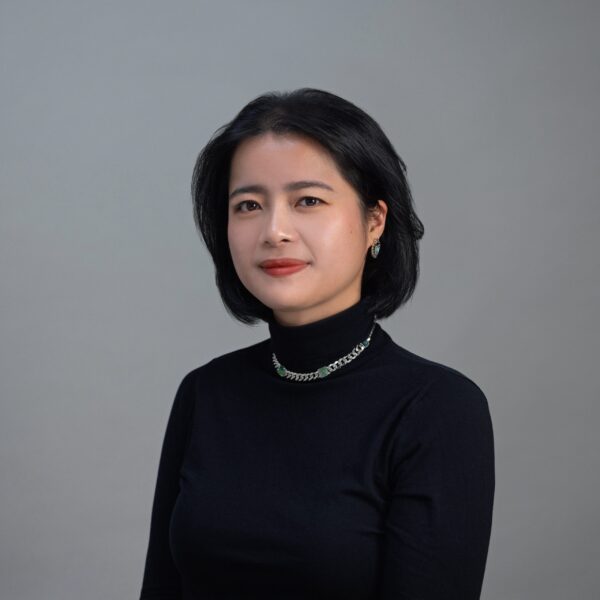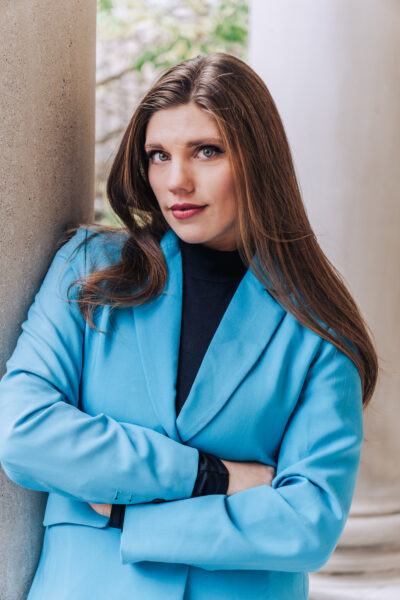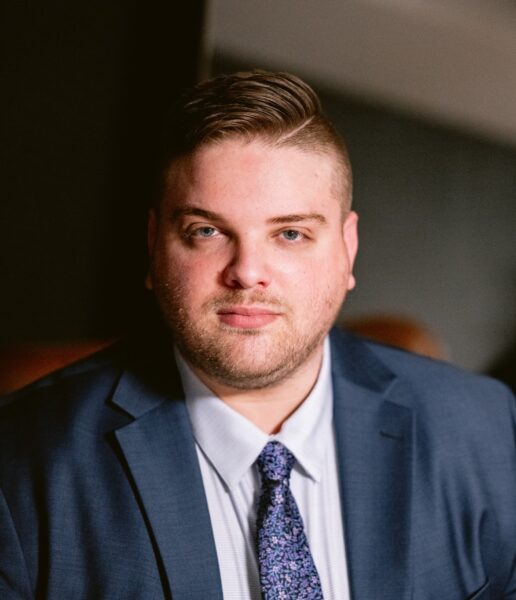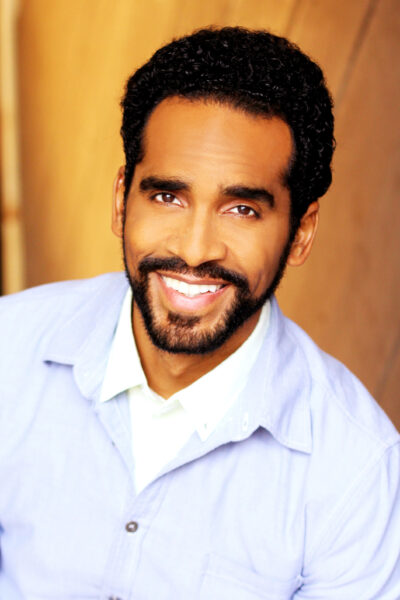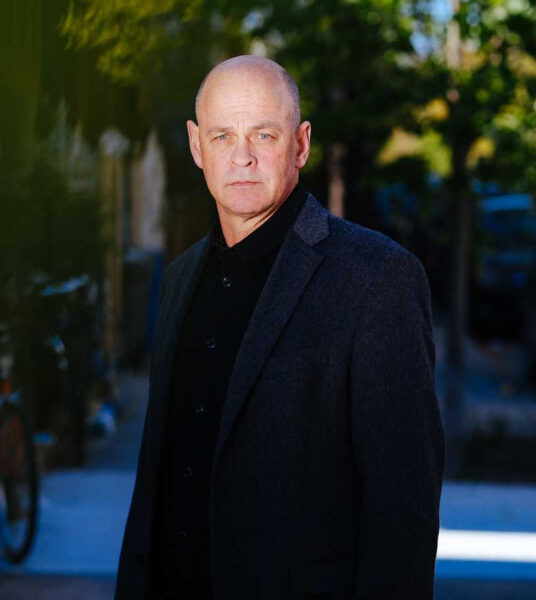Athlone Artists warmly welcomes to its roster Mo Zhou, a stage director whose international career spans all artistic disciplines including opera, theater, musical theater, dance, and film.
Equally passionate about invigorating the classical canon and spearheading new works, Zhou makes her debut with Minnesota Opera in the 2022-23 season with a new production of Handel’s Rinaldo. She also directs Puccini’s Gianni Schicchi alongside Michael Ching’s sequel, Buoso’s Ghost for Florida Grand Opera, Gluck’s Iphigénie en Tauride with Boston Baroque, and various projects at The School of Music, Theater and Dance at University of Michigan – Ann Arbor, where she joined the faculty in the fall of 2022.
Mo had no idea she was destined for a career in opera. Born and raised in Nanjing, China, Zhou excelled in the arts, but wasn’t sure of her life’s trajectory. “Like any good Chinese girl, I studied violin and piano as a child,” says Zhou. In high school, she studied German, French and Italian, honing the latter in college in the hopes that she would get an internship with fashion giant Gucci. “I didn’t get it,” she laughs. “But then, through serendipitous events, I became interested in stage directing.” Mo discovered that she could combine her affinity for music, language and design and bring it to Broadway.
Mo was accepted on a full scholarship to Bowdoin College to study English and theater, and subsequently received the Shubert Presidential Fellowship to earn her MFA in Stage Directing from Columbia University. Mo was seeking work that would continue to keep her in the US after graduation – perhaps a coveted spot as an assistant director on Broadway – when fate stepped in in the form of celebrated stage director Francesca Zambello. Zambello – who was visiting her class at Columbia at the time – had just finished directing her first opera in China and recognized the dearth of Asian directors in the industry.
“She specifically turned to me and said, ‘Are you Chinese?’,” recalls Mo. And then she said something that would change Mo’s life. “China is building major opera houses, there is a flood of new talent from Chinese artists. But I do not see any strong Chinese opera directors, especially strong Chinese female directors. Based on your work, I think you have a real shot.”
Mo found that as an international artist, opera offered a path to work in America. “I started out of survival, of necessity,” she says. “I wrote to every company trying to find work.” And then she saw that Spoleto Festival was going to do a contemporary work written by a Chinese composer, Guo Wengjing. Yet, I see that there is no [Chinese] representation on the creative team. “So I called them. I said, ‘I’m a Chinese director who has received comprehensive directorial training in America. I’m pretty confident you need someone like me.’” After stating her case to the receptionist, Mo was transferred to Spoleto’s General Director Nigel Redden. And within an hour she had a job.
Mo immediately fell in love with the art form of opera. “I love the storytelling through spectacle when it is done right, it is simply the most satisfying experience one could ask for!” she says. From there, she was accepted into leading young artist programs, such as Wolf Trap Opera, the Glimmerglass Festival, and Merola in San Francisco. She furthered her training as the James Marcus Opera Directing Fellow with Stephen Wadsworth at The Juilliard School. “Working with Stephen,” she says, “really helped me understand the rigor in preparation, the respect we need for music, and how to be a better support system to singers.” She was awarded the Robert L.B. Tobin Director-Designer Prize for a production concept of Floyd’s Susannah at the Opera America Conference in Vancouver in 2014.
Since then, Zhou’s productions have been seen at Staatsoper Unter den Linden in Berlin, the Elbphilharmonie and Laeiszhalle in Hamburg, National Centre for the Performing Arts in China, Santa Fe Opera, Florida Grand Opera, Wolf Trap Opera, The Juilliard School, and WP Theatre. She has also worked as a member of the directing staff at Lyric Opera of Chicago, Houston Grand Opera, the Dallas Opera, and Des Moines Metro Opera.
The Diaries of John Rabe:
The defining moment of Mo’s career thus far came in 2019 with the world premiere of The Diaries of John Rabe, an opera composed by Tang Jianping that looks at the Rape of Nanking through the lens of German businessman John Rabe, credited with the rescue of hundreds of thousands of Chinese civilians during the Japanese-Chinese War of 1937-38. The production had a critically acclaimed run at NCPA in China, followed with a European tour at Staatsoper Berlin, Elbphilharmonie Hamburg and Ronacher in Vienna, and was then turned into a 4K opera movie in China. But it wasn’t only the opera’s success that moved Mo.
“This was the unheard story of my community,” says Mo, whose paternal grandmother was a survivor of the massacre. “It was that experience that propelled me to ask the question: Whose story are we telling? It reshaped my view as a director. As one of the few BIPOC directors working in opera, I have the opportunity to reexamine the classical canon. To share hidden narratives from unheard voices.”
In addition to changing the narrative on stage, Mo has taken a shine to teaching, working at the Juilliard School, Manhattan School of Music, NYU Tisch School of the Arts, and now holding a position at the University of Michigan at Ann Arbor. “I want to be an advocate for young artists,” she says. “As a stage director my impact is only one rehearsal at a time. In academic, I know that all of these students will be going out into the world and that they will be the movers and shakers to change the narrative.”
Looking back, Mo is grateful for the turn of events that led her to this life in opera. “Cesca (Zambello) told me in 2009 that I should consider opera after she directed at the National Centre of the Performing Arts in China. And exactly a decade later, I made my directorial debut there. I came here at the age of 18 not sure if I could ever make it. Now, I look back on everything and I’m just amazed by how far I’ve come. I can’t wait for what the future will unfold!”
